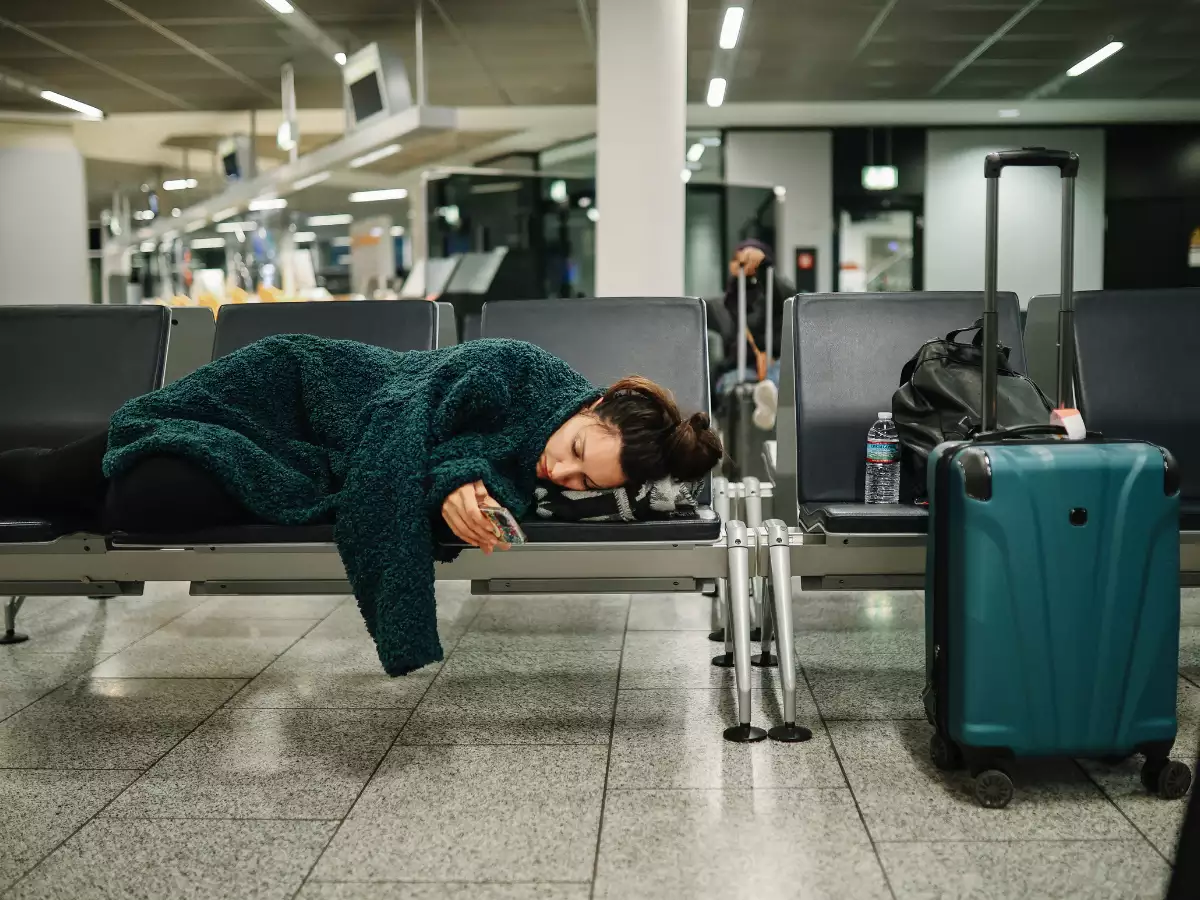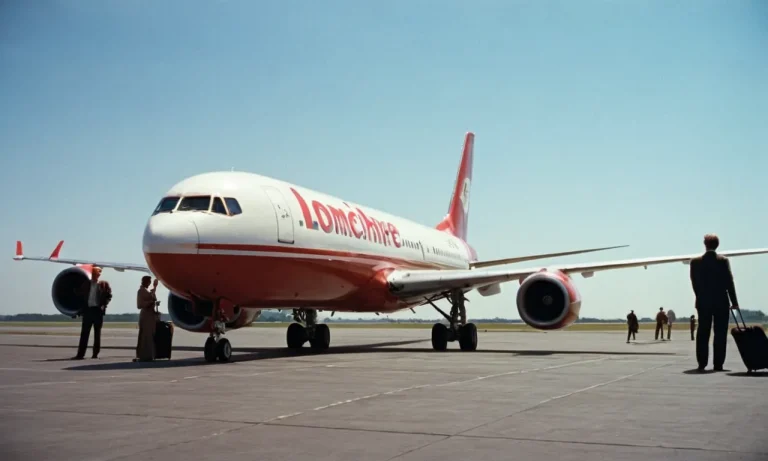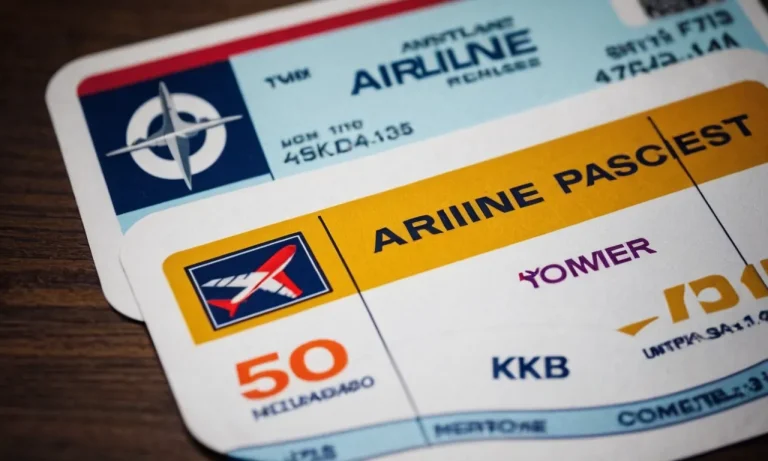If you’re taking a trip with multiple flights and an overnight layover, you may be wondering what happens to your checked bags during that layover.
Don’t worry, your luggage will be taken care of by the airline so you can focus on enjoying your stopover destination.
Here’s a quick answer: Your checked bags will automatically be transferred by the airline from your inbound flight to your connecting outbound flight, even with an overnight layover.
You do not need to pick up your luggage during the layover unless you want access to your bags.
In this comprehensive guide, we’ll go over everything you need to know about overnight layover checked baggage policies. You’ll learn what the process is for transferring bags, any fees involved, how to track your luggage, and tips for packing.
How Airlines Transfer Checked Bags During Layovers
When you check in your bags for a flight with a layover, you may wonder what happens to them during that overnight stay at the connecting airport.
Rest assured, airlines have efficient systems in place to ensure that your luggage reaches its final destination safely and on time.
Bags Are Tagged to Final Destination
When you check in your bags, the airline staff will tag them with a barcode or a RFID (Radio Frequency Identification) tag. This tag contains information about your flight and final destination.
Regardless of the duration of the layover, your bags will be tagged to your final destination, ensuring that they are transferred to the correct flight.
The tags on your bags are scanned at every stage of the journey, from check-in to the boarding gate, and during transfer between flights.
This allows the airline to track the whereabouts of your bags and ensure they are loaded onto the correct aircraft.
Layover Duration Doesn’t Matter
Whether your layover is a few hours or overnight, the airline will still transfer your bags to the next flight.
Baggage handlers at the connecting airport have a limited amount of time to unload and reload bags onto the appropriate aircraft.
Airlines have specific protocols and deadlines in place to ensure a smooth transfer process, even during short layovers.
It’s important to note that if you have a particularly short layover, it’s a good idea to inform the airline staff when you check in. They may prioritize your bags to ensure they are transferred in time for your next flight.
Airport Baggage System Moves Luggage
At the connecting airport, your bags will be processed through the airport’s baggage handling system.
This system consists of conveyor belts, scanners, and sorting areas that efficiently move luggage from one flight to another.
Baggage handlers carefully unload the bags from the arriving aircraft and place them onto the conveyor belts. These belts transport the bags to the sorting area, where they are scanned and sorted based on their final destination.
Once sorted, the bags are loaded onto the appropriate aircraft for the next leg of the journey.
Airlines work closely with airport authorities to ensure that the baggage handling system is well-maintained and operates smoothly.
Regular inspections and maintenance are conducted to minimize the risk of mishandled or lost luggage.
It’s worth mentioning that despite the efficient systems in place, incidents of mishandled or lost luggage can still occur.
However, airlines have dedicated teams to track and locate missing bags, and they will make every effort to reunite you with your belongings as quickly as possible.
Baggage Fees for Layovers
When it comes to layovers, many travelers are concerned about what happens to their checked bags during the overnight stay.
Understanding the baggage fees for layovers can help alleviate any worries and ensure a smooth travel experience.
No Extra Fees for Automatic Transfers
In most cases, if you have an overnight layover and your connecting flight is automatically transferred to the next day, you won’t have to pay any extra baggage fees.
Airlines typically understand that layovers are a necessary part of air travel and will handle the transfer of your checked bags without any additional charges.
This is great news for travelers who want to explore a new city or rest during their layover without having to worry about their luggage.
Fees If You Want Bags During Layover
However, if you wish to access your checked bags during the layover, some airlines may charge a fee. This is because retrieving and rechecking your bags require additional handling and processing.
Airlines will often have specific guidelines and fees for this service, so it’s important to check with your airline ahead of time to understand the costs associated with accessing your checked bags during a layover.
International Layover Fees
International layovers may come with different baggage fee policies compared to domestic layovers.
Some airlines may charge additional fees for international layovers, especially if you need to clear customs and recheck your bags.
It’s important to check with your airline or consult their website for specific information regarding international layovers and any associated fees.

Tracking Your Luggage
When you check in your bags for an overnight layover, it’s natural to wonder what happens to them during that time.
Luckily, most airlines have systems in place to track and monitor your luggage throughout its journey. Here are a few ways you can keep tabs on your checked bags:
Bag Tags Have Tracking Codes
When you check in your luggage, the airline attaches a bag tag to each piece. These tags typically contain a unique tracking code that is linked to your reservation.
This code allows the airline to identify and locate your bags at any point during their transit. So, rest assured that your bags are not lost in the abyss of the airport!
Check Status Online or via App
Many airlines offer online or mobile app services that allow you to track the status of your checked bags. By entering your tracking code or scanning the barcode on your bag tag, you can get real-time updates on the location of your luggage.
This feature can provide peace of mind, especially during an overnight layover when you may be separated from your bags for an extended period of time.
For example, airlines like Delta and United have dedicated tracking tools on their websites and apps that allow you to track your luggage at every step of its journey.
You can see when it has been loaded onto the plane, when it has arrived at the layover airport, and when it will be transferred to your final destination.
It’s like having a personal assistant for your bags!
If Something Goes Wrong
Despite the best efforts of airlines, there may be rare instances when something goes wrong with your luggage during an overnight layover.
If you find that your bags haven’t arrived at your final destination or if there are any other issues, it’s important to contact the airline’s baggage services immediately.
Remember to keep your bag tags and boarding passes handy, as they will be essential for the airline’s staff to assist you.
They will be able to track down your bags and provide you with updates on their whereabouts.
In most cases, the airline will work diligently to reunite you with your luggage as quickly as possible.
It’s also a good idea to familiarize yourself with the airline’s baggage policies and any relevant compensation guidelines.
This can help you navigate the situation with confidence and ensure that you receive appropriate assistance if needed.
Tips for Packing Checked Bags
When it comes to packing checked bags for an overnight layover, there are a few key tips to keep in mind. By following these guidelines, you can ensure that your belongings are safe and easily accessible during your layover.
Pack Essentials in Carry-On
One important tip is to pack your essential items in your carry-on bag. This includes items such as medication, important documents, and a change of clothes.
By keeping these items with you, you’ll have peace of mind knowing that you have everything you need, even if your checked bag doesn’t make it to your final destination.
Include Layover Necessities
Another tip is to pack any necessary items specifically for your layover.
Depending on the length of your layover, you may want to include items such as toiletries, a travel pillow, and entertainment (such as a book or tablet).
Having these items easily accessible in your checked bag can make your layover more comfortable and enjoyable.
Use Luggage Tags
Using luggage tags is essential when packing your checked bags. These tags should include your name, phone number, and email address.
In the unfortunate event that your bag gets lost or misplaced during your layover, having proper identification on your bag can help ensure it gets returned to you.
Additionally, consider adding a unique identifier, such as a brightly colored ribbon or sticker, to help easily spot your bag on the carousel.
Remember, it’s always a good idea to check with your airline for any specific guidelines or restrictions on packing checked bags during an overnight layover.
By following these tips, you can have peace of mind knowing that your belongings are well-packed and prepared for your journey.
Conclusion
When you check your bags for a flight with an overnight layover, you can rest assured they will be transferred for you.
The airline will smoothly move your luggage to your final destination so you don’t have to worry or pay extra fees. Just be sure to pack smartly and track your bags.
Enjoy your long layover and know your checked bags are taken care of by the airline!
Now that you understand the process, you can travel with ease on multi-segment itineraries. Safe travels and enjoy your overnight adventure during long layovers!






